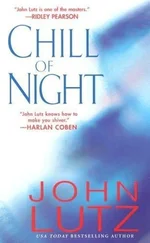Sometimes he mingled with the crowd and from within it watched all night long the lascivious carnival, the Fiesta of Our Lady of Guadalupe, General Saragossa's feast day, the screaming festival, with dancing, carousing, horrific and seductive diguises, and salvos of flares and shooting in the rancid air and the throbbing of the drums accompanying desperate music that writhed till dawn in horrendous, violent desire.
He despatched most of his monthly salary to a bank in Toronto, because his expenses were negligible. Like a travelling artisan he wandered in those years from one godforsaken place to another that was even more so. He stayed in wretched villages at the foot of extinct volcanoes and once he saw one of them erupting in flames. Sometimes he journeyed under thick canopies of ferns and creepers through sensuous jungles. Here and there he would befriend for a while a desolate river or a steep mountain range that the forest seemed to be invading with the savage claws of its roots. Here and there he would stop for a couple of weeks and surrender to total idleness, lying in a hammock all day watching birds of prey in the depths of the empty sky. A girl or a young woman would come in the night to share his hammock, bringing huge earthenware cups of coffee from somewhere for them both. Past and future appeared to him on such nights as two common diseases, slow, destructive plagues that had infected most of mankind and were gradually causing all sorts of strange frenzies in their victims. And he rejoiced that he was not afflicted, and considered himself immune.
Even the present tense, that is to say the given moment that you are at, here and now, travelling, dozing, having sex, or the moment when you are sitting huddled, wide awake and quiet in your battered leather jacket in a window seat on a long night flight in a near-empty plane, even the present moment appears not to demand anything of you beyond being present in it and being as receptive as possible to what you are shown and what is being done to you. Like water running slowly down the inside of eyelids closed with fatigue.
Occasionally he felt fear, or rather a vague apprehension, that in the absence of suffering he might be missing something that would never return. Without having any idea what it was that was being missed, if indeed anything was being missed. Sometimes he had a feeling that he had forgotten something he should remember but when he collected his thoughts he found that he had forgotten what it was he thought he had forgotten. In Trujillo, in Peru, one night he jotted down on a sheet of hotel notepaper four or five questions in Hebrew: Is this a contraction of the life force? Barrenness? Atrophy? Exile? After an hour or two he wrote under these questions a reply: Even if we suppose it really is atrophy etc., why not? What's the harm in that?
And with that he seemed to snuggle down again into his tropical torpor.
But in his work he was as alert as a thief in a treasure chamber. For instance, when he happened to spend three or four days on end in a low-ceilinged broom closet of a room in some village inn, or occasionally in a splendid city office put at his disposal by the company, drawing, writing, altering, calculating, he was electrically sharp, needing neither sleep nor company, not raising his head from the paper even when a petite beauty slipped in with coffee and a tray of food and stood looking at him for a moment, waiting, tense, as though receiving the capering sparks of his energy on the skin of her nipples, until she gave up and left. Or sometimes during a meeting, when he presented his proposals to the decision-making authorities, a cold, sharp inner flame might beam out from him and make others yield to his will. At such times he felt a powerful, delightful upsurge of professional pleasure: the force of invention and perfection glowed white-hot in him like the filament of a powerful light bulb. It was as though deep in the forest, in a hidden cut-off place, there pulsed intermittently a kind of spring that existed independently of you and from moment to moment it bubbled up and vanished, bubbled up and again carved itself a predetermined course, by the force of laws that you were unable to understand but that had you entirely in their power.
And again on long journeys to godforsaken districts in the mountains or on the Caribbean coast, studying the locality, supervising the construction stage, introducing the odd improvised alteration, on the inspiration of the moment, he would sometimes be smitten suddenly with fatigue and lie down for days and nights in a hammock behind a hut. Sometimes he would rise at midnight and walk barefoot to join a conversation round a fire about love, betrayal and the vicissitudes of life. And so, in the courtyard of a miserable tavern, over glasses of native liquor, in the company of workers, technicians, vendors and comfort girls, under a strange night sky that might be suddenly illuminated by the momentary ecstasy of falling stars, he came to learn more and more about episodes full of lust and despair. As though these two were a pair of strolling players who appeared evening after evening before an audience gathered in taverns or in the courtyards of remote inns, never wearying of repeating endlessly the same fixed passion play, watched by Theo time and again without his ever being bored but without his being particularly impressed either.
In bed, or in a hammock, when he was having sex with a woman who had chosen him, usually a woman twenty or thirty years younger than himself, he would make love slowly and precisely, expertly prolonging the pleasure, guiding her confidently along the byways of the forest, and occasionally in the midst of ecstasy he experienced all at once a powerful craving for fatherhood. He would show the girl a loving side that was inappropriate to casual sex and unusual between strangers: a parental side. Glimpsing this parental concern suddenly in the midst of ecstasy, the girl would react at first with bewildered fear and alarm, but then she would be overwhelmed, as though pierced to the secret core of her spine. So their bodies would reach territories that lust alone cannot get to, until it seemed as though the river was not simply passing by on the other side of the hut but flowing out of them. But by the light of day he always reverted to being distant and correct. Polite, considerate, detached. And obliged to go on his way.
IN February 1981 I dropped into the Embassy in Caracas to pick up an envelope containing some material I had sent for from the office in Israel. The new receptionist explained to me, with an air of sympathy and particular delicacy, as if she had the task of softening the blow to a patient receiving the results of tests, that the package was locked in the security officer's safe, and he would not be back for another hour or so. Meanwhile, she sat me down on a wicker chair, gave me some coffee that I had not asked for — it was sharp, penetrating coffee, that almost felt alcoholic — and in a few moments managed to make me feel that I had charmed her. She had not a trace of inhibition when she said to me in her young girl's voice, some ten minutes after I entered the office: Stay for a bit. You're interesting.
A woman of medium height, she moved around the room as though every movement of her body pleased her; her blonde fringe tossed lightly on her forehead, and she was wearing a colourful printed dress. When she stood up to pour the coffee her dress whirled round her legs and I noticed something athletic, though unhurried and relaxed, in her bearing. She contrived to hint without really hinting that it was I who was arousing the feminine signal that was emanating from her, you are attractive, I am attracted, why should I hide it, and I discovered, to my own surprise, that almost unawares I had begun to return her signals. All these years I had been avoiding the company of Israelis, and especially those progressive, cooperative Tel Avivi girls with reasoned views for or against everything in the world. In my years of wandering around these parts I had been drawn to a hypnotic tropical femininity that sometimes seemed imprisoned like a dark flame in a cage of Hispanic arrogance. Yet here was this fair-haired, green-eyed, energetic woman with her bell-like voice, her face openly beaming with the pleasure I was affording her, bursting with generous vitality. With a movement of the shoulder and hip that said, Take a look, this is a body, she stirred something inside me that almost resembled the relaxed openness that is experienced sometimes in a meeting between childhood friends. There was also a sudden urge to make a strong impression on her. Yet for years and years I had made no effort, I had not had to make any, to impress a woman.
Читать дальше












